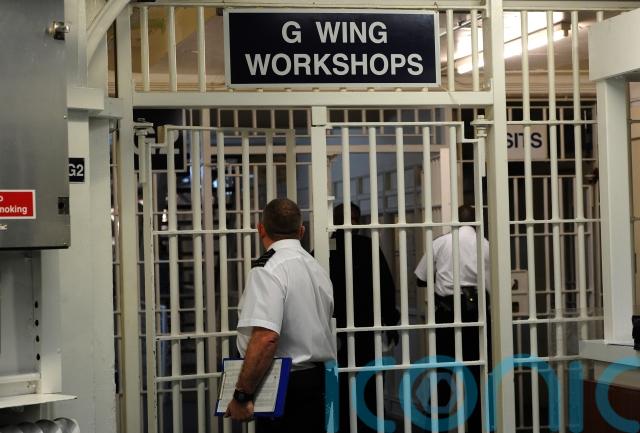
An inmate who died after taking drugs behind bars was an “unfortunate casualty” of the war prison authorities are fighting against substance use, a sheriff has said.
Anthony McCarthy died in his cell in HMP Kilmarnock at around 8.18am on September 28, 2020.
A post-mortem examination concluded his death was drug-related, with the cause of death recorded as cocaine, flubromazolam and synthetic cannabinoid receptor agonist intoxication.
A mandatory fatal accident inquiry (FAI) into his death found no other precautions could have been taken to avoid it and made no recommendations.
Sheriff Colin Bissett said prison authorities face a continual battle against drugs.
In his written determination, he said: “That Mr McCarthy died in consequence of his ingesting three different illegal drugs within his prison cell demonstrates the scale of the challenge faced by prison authorities to prevent such substances entering and circulating within the prison estate.”
He said drugs do so because of “determined, ever more inventive attempts to circumvent prison security”.
The FAI held at Kilmarnock Sheriff Court in March 2023 heard that at no time following his arrival at HMP Kilmarnock did McCarthy’s conduct give rise to a suspicion that he was using drugs.
Following his death, detectives found several items in his cell including four blue tablets, a paper wrap with brown paper inside, a kettle with a sock inside, a plastic pen modified for use as a pipe, and a quantity of prescribed medications.
Forensic examination identified the tablets as containing a benzodiazepine and the paper, Spice, a synthetic cannabinoid.
Police were unable to establish from where these were obtained.
The inquiry heard CCTV recorded McCarthy receiving an item from another prisoner on the evening before his death, however this was only noticed the following day.
The sheriff found it is “hardly a defect in the system that neither (CCTV) operator observed the incident while monitoring the feeds from some 300 cameras”.
He said: “That Mr McCarthy had access to the substances that killed him is eloquent of the failure of the precautions taken by the prison to prevent this.
“I am not persuaded however that there are any other precautions which could reasonably have been taken and were not.
“Significant time, care and expense continues to be spent by the prison authorities to prevent the entry of illegal drugs.

“They are doing all that might reasonably be done, given finite resources, the need to respect the human rights of prisoners and visitors to the prison estate and the widespread availability of these substances in society generally.
“It can be hoped that continued advances in technology will allow them to win the war against substance misuse within the prison estate, a war in which Mr McCarthy was an unfortunate casualty.”
In its submissions to the FAI, the Crown said HMP Kilmarnock, which at the time was run by Serco on behalf of the Scottish Prison Service (SPS), used various systems and methods to prevent drugs entering the prison.
It described the measures as “comprehensive and subject to regular review given the changing trends and patterns of drug use”.
The Crown submissions said: “It is this regular review that led to the introduction of a new scanner to trace psychoactive substances.”
It said this diligence, exceeding the contract requirements of SPS, “suggests that there is no defect identifiable in any system of working concerned”.
HMP Kilmarnock transferred to SPS on March 17 this year.
A Scottish Prison Service spokesperson said: “Our thoughts remain with the family of Mr McCarthy.
“As Sheriff Bissett has rightly recognised, our staff work extremely hard to protect those in our care from the harm caused by attempts to bring illicit substances into our establishments, and we continue to respond to this ever-evolving challenge.”
Serco declined to comment.
The purpose of an FAI is to establish the circumstances of the death and to consider what steps, if any, may be taken to prevent other deaths in similar circumstances.
Unlike a criminal trial, it seeks to establish the facts surrounding the death and is not a hearing which apportions blame.
Subscribe or register today to discover more from DonegalLive.ie
Buy the e-paper of the Donegal Democrat, Donegal People's Press, Donegal Post and Inish Times here for instant access to Donegal's premier news titles.
Keep up with the latest news from Donegal with our daily newsletter featuring the most important stories of the day delivered to your inbox every evening at 5pm.